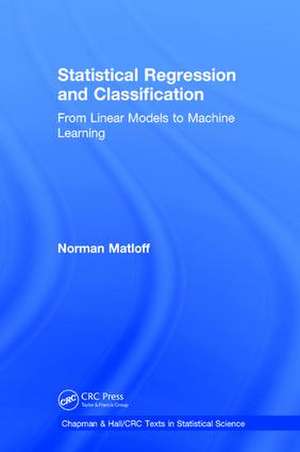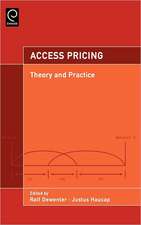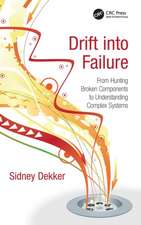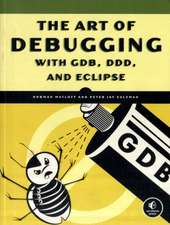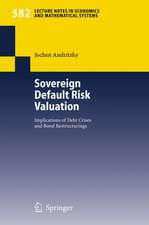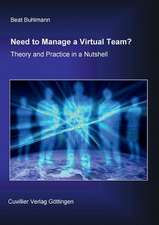Statistical Regression and Classification: From Linear Models to Machine Learning: Chapman & Hall/CRC Texts in Statistical Science
Autor Norman Matloffen Limba Engleză Hardback – 20 iul 2017
Din seria Chapman & Hall/CRC Texts in Statistical Science
- 5%
 Preț: 650.11 lei
Preț: 650.11 lei - 9%
 Preț: 579.76 lei
Preț: 579.76 lei - 8%
 Preț: 547.81 lei
Preț: 547.81 lei - 5%
 Preț: 838.33 lei
Preț: 838.33 lei - 9%
 Preț: 595.18 lei
Preț: 595.18 lei - 9%
 Preț: 623.03 lei
Preț: 623.03 lei - 8%
 Preț: 544.76 lei
Preț: 544.76 lei - 9%
 Preț: 641.61 lei
Preț: 641.61 lei - 8%
 Preț: 508.20 lei
Preț: 508.20 lei - 8%
 Preț: 551.99 lei
Preț: 551.99 lei - 9%
 Preț: 1115.11 lei
Preț: 1115.11 lei - 9%
 Preț: 641.93 lei
Preț: 641.93 lei -
 Preț: 341.43 lei
Preț: 341.43 lei - 8%
 Preț: 536.31 lei
Preț: 536.31 lei -
 Preț: 357.60 lei
Preț: 357.60 lei - 8%
 Preț: 444.54 lei
Preț: 444.54 lei - 9%
 Preț: 578.22 lei
Preț: 578.22 lei -
 Preț: 371.71 lei
Preț: 371.71 lei - 9%
 Preț: 806.41 lei
Preț: 806.41 lei - 9%
 Preț: 602.46 lei
Preț: 602.46 lei - 9%
 Preț: 593.61 lei
Preț: 593.61 lei - 9%
 Preț: 608.09 lei
Preț: 608.09 lei - 8%
 Preț: 496.58 lei
Preț: 496.58 lei - 9%
 Preț: 610.94 lei
Preț: 610.94 lei - 20%
 Preț: 541.42 lei
Preț: 541.42 lei -
 Preț: 355.66 lei
Preț: 355.66 lei - 8%
 Preț: 516.75 lei
Preț: 516.75 lei -
 Preț: 349.10 lei
Preț: 349.10 lei - 9%
 Preț: 568.64 lei
Preț: 568.64 lei - 8%
 Preț: 465.05 lei
Preț: 465.05 lei - 9%
 Preț: 580.81 lei
Preț: 580.81 lei - 9%
 Preț: 617.41 lei
Preț: 617.41 lei - 9%
 Preț: 595.91 lei
Preț: 595.91 lei -
 Preț: 388.08 lei
Preț: 388.08 lei -
 Preț: 356.64 lei
Preț: 356.64 lei - 8%
 Preț: 547.38 lei
Preț: 547.38 lei - 9%
 Preț: 599.19 lei
Preț: 599.19 lei -
 Preț: 316.73 lei
Preț: 316.73 lei - 9%
 Preț: 638.87 lei
Preț: 638.87 lei -
 Preț: 349.46 lei
Preț: 349.46 lei -
 Preț: 372.50 lei
Preț: 372.50 lei - 8%
 Preț: 439.81 lei
Preț: 439.81 lei - 11%
 Preț: 686.52 lei
Preț: 686.52 lei - 8%
 Preț: 510.14 lei
Preț: 510.14 lei - 8%
 Preț: 511.07 lei
Preț: 511.07 lei - 8%
 Preț: 563.73 lei
Preț: 563.73 lei - 18%
 Preț: 713.39 lei
Preț: 713.39 lei - 15%
 Preț: 684.84 lei
Preț: 684.84 lei - 22%
 Preț: 371.94 lei
Preț: 371.94 lei
Preț: 860.08 lei
Preț vechi: 1147.71 lei
-25% Nou
Puncte Express: 1290
Preț estimativ în valută:
164.60€ • 171.21$ • 135.88£
164.60€ • 171.21$ • 135.88£
Carte tipărită la comandă
Livrare economică 15-29 aprilie
Preluare comenzi: 021 569.72.76
Specificații
ISBN-13: 9781138066465
ISBN-10: 113806646X
Pagini: 532
Dimensiuni: 156 x 234 x 33 mm
Greutate: 1.14 kg
Ediția:1
Editura: CRC Press
Colecția Chapman and Hall/CRC
Seria Chapman & Hall/CRC Texts in Statistical Science
ISBN-10: 113806646X
Pagini: 532
Dimensiuni: 156 x 234 x 33 mm
Greutate: 1.14 kg
Ediția:1
Editura: CRC Press
Colecția Chapman and Hall/CRC
Seria Chapman & Hall/CRC Texts in Statistical Science
Cuprins
Introduction. Linear Regression Models. Generalized Linear Models. Nonparametric Models. Model Parsimony. Use of Regression for Understanding. Large Data. Miscellaneous Topics. Appendix: Quick R. Appendix: Math Stat. Appendix: Matrix Algebra.
Notă biografică
Norman Matloff is a professor of computer science at the University of California, Davis, and was a founder of the Statistics Department at that institution. Statistical Regression and Classification: From Linear Models to Machine Learning was awarded the 2017 Ziegel Award for the best book reviewed in Technometrics in 2017. His current research focus is on recommender systems, and applications of regression methods to small area estimation and bias reduction in observational studies. He is on the editorial boards of the Journal of Statistical Computation and the R Journal. An award-winning teacher, he is the author of The Art of R Programming and Parallel Computation in Data Science: With Examples in R, C++ and CUDA.
Recenzii
" . . . Matloff delivers a well-balanced book for advanced beginners. Besides the mathematical formulas, he also presents many chunks of R code, and if the reader is able to read R code, the formulas and calculations become clearer. Due to the computational R code, the well-written Appendix, and an overall clear English, the book will help students and autodidacts. Matloff has written a textbook of the best kind for such a broad topic."
~ Jochen Kruppa, Biometric Journal
". . . the book is well suitable for a wide audience: For practitioners interested in applying the methodology, for students in statistics as well as economics/social sciences and computer science. Even in more mathematically oriented classes it can be used as a complimentary text to the usual theoretic textbooks deepening students ability to interpret and question statistical results.
~ Claudia Kirch, Magdeburg
"This is an application-oriented book introducing frequently used classification and regression methods and the principles behind them. This book tries to keep a balance between theory and practice. It not only elaborates the theories of statistical regression and classification, but also provides large amount of real world examples and R codes to help the reader practice what they learned. As stated in the preface, the targeted readers are data analysts and college students. The style of the book fits well to the anticipated audience."
~ Quanquan Gu, University of Virginia
"I consider this book as very useful for the practitioner, the instructor and the student. It contains a wealth of material, both conceptual and practical, and above all stimulates the reader to think by him/herself, without being misled by recipes."
~Ricardo Maronna, Statistical Papers
~ Jochen Kruppa, Biometric Journal
". . . the book is well suitable for a wide audience: For practitioners interested in applying the methodology, for students in statistics as well as economics/social sciences and computer science. Even in more mathematically oriented classes it can be used as a complimentary text to the usual theoretic textbooks deepening students ability to interpret and question statistical results.
~ Claudia Kirch, Magdeburg
"This is an application-oriented book introducing frequently used classification and regression methods and the principles behind them. This book tries to keep a balance between theory and practice. It not only elaborates the theories of statistical regression and classification, but also provides large amount of real world examples and R codes to help the reader practice what they learned. As stated in the preface, the targeted readers are data analysts and college students. The style of the book fits well to the anticipated audience."
~ Quanquan Gu, University of Virginia
"I consider this book as very useful for the practitioner, the instructor and the student. It contains a wealth of material, both conceptual and practical, and above all stimulates the reader to think by him/herself, without being misled by recipes."
~Ricardo Maronna, Statistical Papers
Descriere
This text provides a modern introduction to regression and classification with an emphasis on big data and R. The main body uses math stat sparingly and always in the context of something concrete; readers can skip the math stat content entirely if they wish.
